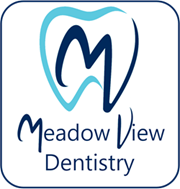Temporomandibular Joint (TMJ) disorders are a group of conditions that cause pain and dysfunction in the jaw joint and the muscles controlling jaw movement. The TMJ connects the lower jaw (mandible) to the skull (temporal bone) in front of the ear. Understanding the causes and available treatments is crucial for those suffering from TMJ disorders.
Causes of TMJ Disorders
The exact cause of a person’s TMJ disorder is often difficult to determine. However, several factors can contribute to muscle tightness and dysfunction of the TMJ:
- Jaw Injury: A heavy blow or whiplash can injure the joint directly or the muscles of the jaw.
- Teeth Grinding or Clenching: This habit can put a lot of pressure on the TMJ.
- Arthritis: Various types of arthritis, such as rheumatoid arthritis and osteoarthritis, can affect the TMJ.
- Stress: It can cause people to tighten facial and jaw muscles or clench the teeth.
- Movement Issues: Some people have a soft cushion or disc between the ball and socket of the joint that moves out of proper alignment.
- Genetic Factors: Some individuals may be more prone to pain and dysfunction in this joint.
- Other Health Conditions: Certain chronic conditions may predispose individuals to TMJ disorders.
Treatment of TMJ Disorders
 Treatment for TMJ disorders can vary depending on the severity and cause of the symptoms. It usually involves a combination of self-care practices and medical interventions:
Treatment for TMJ disorders can vary depending on the severity and cause of the symptoms. It usually involves a combination of self-care practices and medical interventions:
- Self-Care Practices:
- Eating soft foods
- Avoiding chewing gum and biting nails
- Practicing good posture
- Stress management and relaxation techniques
- Applying ice or moist heat to the joint area
- Medications:
- Pain relievers and anti-inflammatories
- Muscle relaxants for a limited period
- Tricyclic antidepressants in low doses for pain relief
- Therapies:
- Oral splints or mouth guards (occlusal appliances)
- Physical therapy, including exercises to strengthen and stretch the jaw muscles
- Surgical or Other Procedures:
- Arthrocentesis (minimally invasive procedure)
- Injections (corticosteroid or Botox)
- TMJ arthroscopy or open-joint surgery in severe cases
Your Best Bet: Talk to Your Dentist
A multifaceted approach that combines self-care, medical treatment, and, in some cases, surgical interventions can be effective in managing TMJ disorders. It’s important for individuals experiencing symptoms to consult with a healthcare professional. Ideally, talk to your dentist. At Meadow View Dentistry, we specialize in jaw disorders, to determine the most appropriate course of treatment based on your specific condition. Schedule your appointment today!

